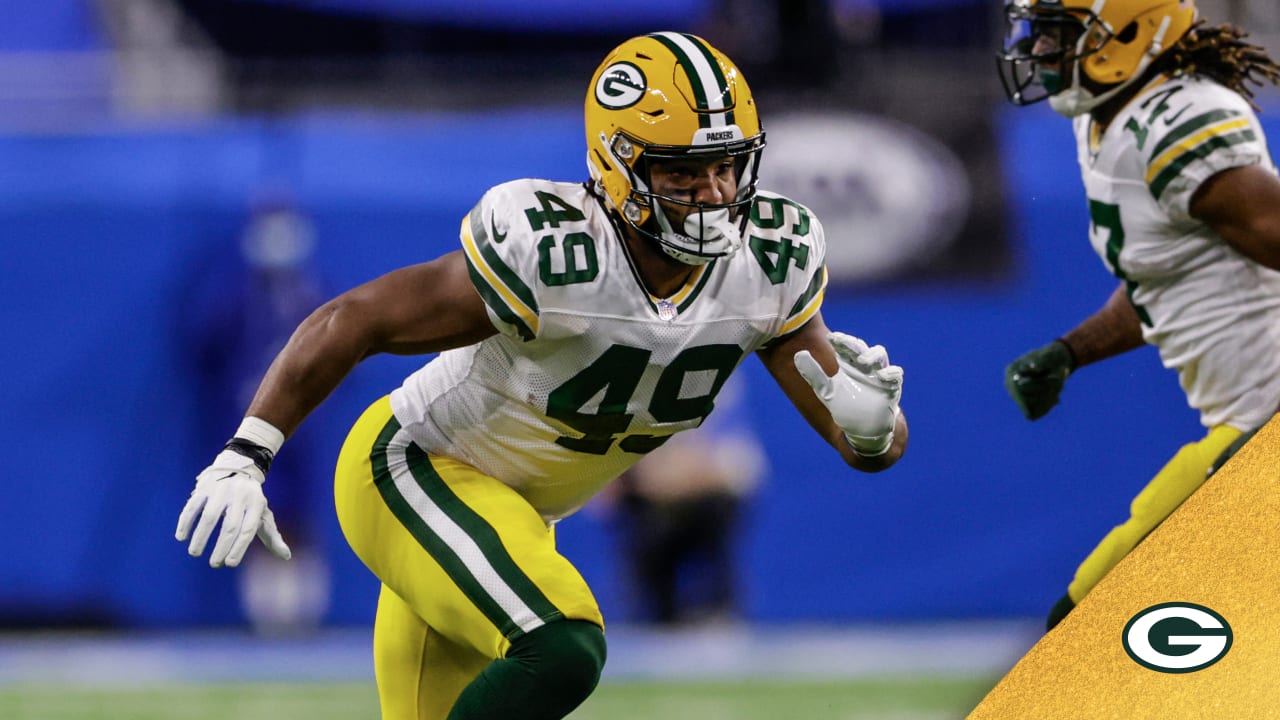Cheesehead
Well-known member
- Mar 19, 2019
- 2,854
- 0

GREEN BAY – The Packers needed to do things a little differently this past season due to the measures the NFL and NFLPA instituted in response to the COVID-19 pandemic.
As challenging as that may have been, the organization made the necessary adjustments – from the structure and sanitation of the football facilities, to the way coaches trained the team, and all the way up to how the front office handled player acquisition.
One of the most prudent ideas the NFL and NLFPA devised was the expansion of the practice squad from 12 players to 16, including a provision that allowed teams to carry up to six veteran exceptions (four players with up to two accrued NFL seasons and two others with unlimited experience).
Each week, teams also were able to elevate up to two practice-squad players to the 48-man gameday roster without having to clear a spot on the 53-man active roster. Teams could elevate more if they had players currently on the COVID-19/reserve list.
"I really liked it a lot," Packers General Manager Brian Gutekunst said of the changes. "Obviously, there was a lot more options this year when you had injuries … that weren't available to us in the past.
"One of the big things, I think, for us was the fact that the expanded practice-squad roster and the IR rules allowed us to have players to draw from through the season that were trained up throughout training camp and the season."
In the past, when injuries hit, Gutekunst and his scouts sometimes had to pilfer players off other team's practice squads or sign a veteran off the street who may not be in football shape.
This year, the Packers were able to keep a healthy queue of practice-squad players should injuries, or COVID-19, arise – an important adjustment given all the restrictions the league had in place regarding in-season workouts with free-agent players.
All told, the Packers elevated 16 different players a combined total of 34 times from the practice squad to the 48-man gameday roster. Nine of those 34 elevations served as replacements for players on the COVID-19 list.
Of those 16, five players were eventually signed to the 53-man roster: tight ends Dominique Dafney and John Lovett, defensive lineman Billy Winn, safety Henry Black and guard Ben Braden.
Winn, Brian Price, Jared Veldheer and Tramon Williams were all vested veterans who wouldn't have been eligible for the practice squad in the past but were allowed to sign with the Packers because of modified COVID-19 rules.
The Packers also used the expanded practice squad to carry an extra kicker (JJ Molson) and punter (Ryan Winslow) during the postseason in case of emergency.
Dafney, an undrafted rookie out of Indiana State, finished the year as the Packers' "F" tight end, a versatile position rookie third-round pick Josiah Deguara was expected to fill before suffering a season-ending knee injury in September.
"I think you've got to give those guys a ton of credit for when their opportunity was called, being able to perform and being ready," Gutekunst said. "If you look at Dafney, he's a great example.
"We started the year with Josiah getting hurt, and John Lovett came in and did some really good things for us, and then Dafney got his opportunity and did the most from what he had."
The Packers also benefitted from the NFL relaxing rules for designating a player to return off injured reserve. Instead of only being able to bring back two players all season, teams were permitted to return any IR player to the roster as long as they missed at least three games.
Under this measure, the Packers brought back center Corey Linsley, receivers Allen Lazard and Equanimeous St. Brown, and linebackers Christian Kirksey and Kamal Martin. All five contributed to the Packers going 13-3 for a second straight season under Head Coach Matt LaFleur.
The changes to the practice squad and injured reserve were instituted only for the 2020 season but could have staying power, especially after NFL Commissioner Roger Goodell hinted on Thursday that the offseason program could again be virtual with the COVID-19 pandemic still ongoing.
Gutekunst felt the changes not only hastened the development process of young players but also improved the quality of games leaguewide with the enhanced preparation.
Closer to home, Gutekunst was proud of how the entire organization navigated the COVID-19 season – giving special mention to head athletic trainer Bryan Engel and director of security/risk management Doug Collins for developing the organization's protocols.
"This isn't something that you can completely be free from but I thought our guys, within the building, really set up things in place that gave our players the best opportunity to avoid that situation," Gutekunst said. "You gotta give our players a lot of credit, too. We asked them to do a lot of things on their own and they really came through. I'm proud of that part of it."
